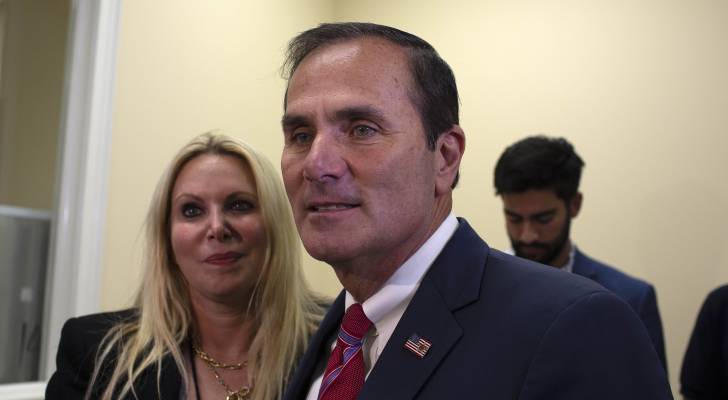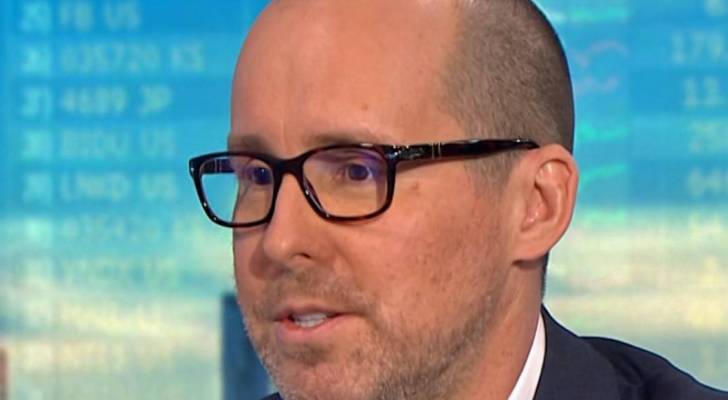‘It’s sad’: Florida’s condo fee crisis could trigger the ‘next wave of homeless people’ in the state, says one representative — with seniors on fixed incomes at highest risk


We adhere to strict standards of editorial integrity to help you make decisions with confidence. Some or all links contained within this article are paid links. A new building safety law that was passed in the wake of the Surfside tragedy in Florida has resulted in a tremendous amount of financial pressure on condo owners. […]
Dave Ramsey ranted about 3 ‘illogical’ money mistakes Americans make that ‘baffle’ him — here’s how you can avoid these common financial errors


We adhere to strict standards of editorial integrity to help you make decisions with confidence. Some or all links contained within this article are paid links. Across 32 years of giving people financial advice on the airwaves, Dave Ramsey has probably seen it all. But on an episode of "The Ramsey Show" earlier this year, […]
I’m 65, have $120,000 saved, collect Social Security of $1,700/month — but monthly expenses total $3,900. How can I make sure money doesn’t run out without sacrificing lifestyle?


We adhere to strict standards of editorial integrity to help you make decisions with confidence. Some or all links contained within this article are paid links. At age 65, a $120,000 nest egg isn’t going to produce as much income as you might hope. Assuming you follow the 4% rule, you’ll only be able to […]
‘I learned the hard way’: Dave Bautista said his house was foreclosed on and he ‘lost everything’ after leaving WWE — but got the ‘best’ money advice from ‘The Undertaker’


We adhere to strict standards of editorial integrity to help you make decisions with confidence. Some or all links contained within this article are paid links. Dave Bautista is among the few professional wrestlers who successfully transitioned to a career in Hollywood. Millions of fans followed his journey from the ring to the silver screen, […]
How much cash do you plan to keep on hand after you retire? Here are 3 of the biggest reasons you’ll need a substantial stash of savings in retirement


We adhere to strict standards of editorial integrity to help you make decisions with confidence. Some or all links contained within this article are paid links. During your working years, it’s important to have cash savings for unplanned expenses. These could run the gamut from home repairs to medical emergencies to a period of unemployment. […]
‘We’re not robots’: As recession looms, Americans may be unsure about what to do with their 401(k) — here’s what experts recommend


We adhere to strict standards of editorial integrity to help you make decisions with confidence. Some or all links contained within this article are paid links. Since 1950, the US has weathered 11 recessions, proving time and again that downturns aren’t a question of if, but when. After a strong performance from the S&P 500 […]
This is how American car dealers use the ‘4-square method’ to make big profits off you — and how you can ensure you pay a fair price for all your vehicle costs


We adhere to strict standards of editorial integrity to help you make decisions with confidence. Some or all links contained within this article are paid links. Car dealers aren’t always known for prioritizing your budget — and the lengths some will go to to separate you from your hard-earned money are greater than you might […]
Here are 5 simple signs that someone is secretly broke in America — do they apply to the people around you?


We adhere to strict standards of editorial integrity to help you make decisions with confidence. Some or all links contained within this article are paid links. It’s natural to be curious about how well off — or not — our friends, neighbors and peers are. And for better or worse, social media makes it easy […]
Charles Barkley says Michael Jordan gave him 1 golden financial tip in his early NBA days that made him millions — here is the big money move and how you can use it to get rich, too
We adhere to strict standards of editorial integrity to help you make decisions with confidence. Some or all links contained within this article are paid links. Young athletes have been known to blow through their first big paycheck. Former NBA star Charles Barkley almost did, too — until Michael Jordan gave him one life-changing financial […]
‘No turning back’: This Wall Street ‘permabear’ has been predicting the biggest market crash since 1929 — How you can prepare your portfolio if he’s right


We adhere to strict standards of editorial integrity to help you make decisions with confidence. Some or all links contained within this article are paid links. Mark Spitznagel, chief investment officer of Universa Investments, told Business Insider in 2024 that he thinks the “worst market crash since 1929” is coming. Now, he claims that the […]